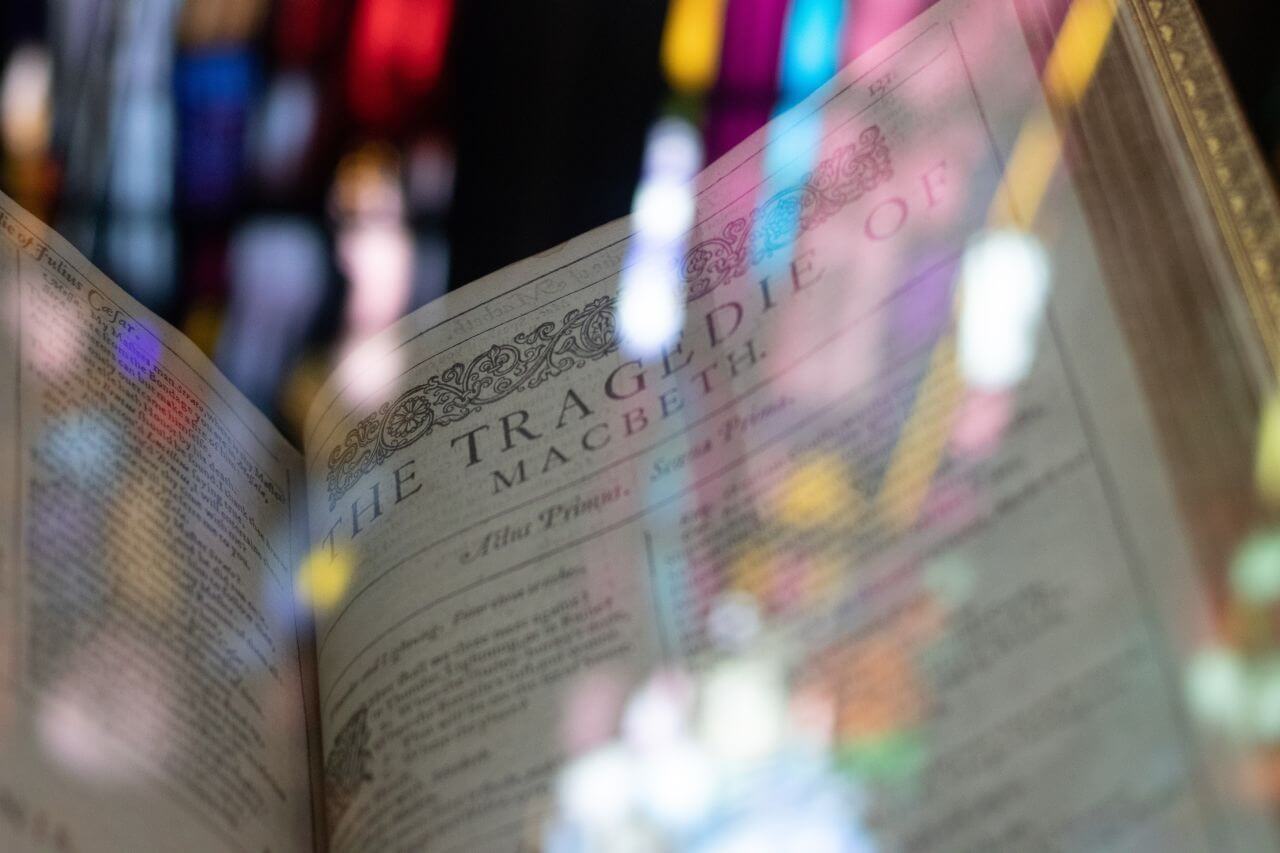
Lexicon Origins: Shakespearean Words in Modern Chatter

Lexicon Origins: Shakespearean Words in Modern Chatter
We, as speakers of the English language, owe a great debt to William Shakespeare. He wasn’t just one of the greatest playwrights of all time, but also a prolific inventor of words. Many of thewords Shakespeare invented or coined are still in common use today. The masterful storyteller had so much to express that he needed to push the boundaries of the English vocabulary as he knew it.Some of the most surprisingly common words Shakespeare invented are:
- bedroom
- embrace
- employer
- excitement
- fashionable
- generous
- informal
- invitation
- lonely
- manager
- satisfying
- useful
And these are just a few of the words Shakespeare introduced to the world during his life in the Elizabethan England. Whether you’re a fan of Shakespeare or simply enjoy learning about the evolution of the English language, this article is sure to captivate and entertain you. So stick around and read on to discover some more of the words Shakespeare invented.
How many words did Shakespeare invent?
Most sources agree that Shakespeare invented around 1700 words. However, it seems there’s more to this story. While the playwright was indeed very productive in this field, some say that not all these words were created by him. Instead, he was just the first one to document these words in writing. And that’s entirely possible.
Let’s look at this way. There is a good likelihood that some of the words attributed to Shakespeare were used in Elizabethan England on a daily basis. Only not in writing. And what did Shakespeare do? He naturally introduced them in his work after having heard them in conversations with peers or other people. In these instances, Shakespeare is recorded as the first individual to have written documentation of these words.
As a matter of fact, occasional new research reveals that Shakespeare was actually not the originator of some of these terms. The Oxford English Dictionary holds a vast amount of words for which it lists Shakespeare as the first recorded usage, leading to the widespread assertion that Shakespeare was a prodigious coiner of words. But as it turns out, most of the OED editors at that time chose Shakespeare as a source simply because he was the earliest author they looked at.
According to the OED , the most frequently quoted single author in the Second Edition of the Dictionary (published in 1989) is William Shakespeare with approximately 33,300 quotations.
Be that as it may, we’re not suggesting Shakespeare was not a genius of words. We’re simply stating we should take numbers with a grain of salt.
How did Shakespeare invent words?
The master storyteller famously invented new words pretty much the same way we do today: through prefixes, suffixes, conversion and compounds. Simply put, Shakespeare’s words were created by:
- turning nouns into verbs;
- using verbs as adjectives;
- connecting words that have never before been used together before;
- adding prefixes or suffixes;
- concocting entirely original terms.

Cool words Shakespeare invented
To invent new words, or not to invent new words? Clearly, William Shakespeare did not ask himself that. He just went with it and invented new words so he could properly tell his stories. In the end, he was so good at both storytelling and coining words that today it is impossible to have an English curriculum without Shakespeare. But enough tittle-tattle.Let’s see what other words Shakespeare invented:
1. Addiction
Henry V , Act I, Scene II
2. Arch-villain
Timon of Athens , Act V, Scene I
3. Bandit
King Henry VI , Part II, Act IV, Scene I
4. Cold-blooded
King John , Act III, Scene I
5. Dauntless
King Henry VI , Part III, Act III, Scene III
6. Fashionable
Troilus and Cressida , Act III, Scene III
7. (to) Friend
Hamlet , Act I, Scene V
8. (to) Gossip
The Comedy of Errors , Act V, Scene I
9. Hint
Othello , Act I, Scene III
10. Laughable
The Merchant of Venice , Act I, Scene I
11. Majestic
Julius Caesar , Act I, Scene II
12. Marketable
As You Like It , Act I, Scene II
13. Mimic
A Midsummer Night’s Dream , Act III, Scene II
14. Monumental
Troilus and Cressida , Act III, Scene III
15. Obscene
Love’s Labour’s Lost , Act I, Scene I
16. Ode
Love’s Labour’s Lost , Act IV, Scene III
17. Olympian
King Henry VI , Part III, Act II, Scene III
18. Outbreak
Hamlet , Act II, Scene I
19. Puking (disputed)
As You Like It , Act II, Scene VII
20. Radiance
All’s Well That Ends Well , Act I, Scene I
21. (to) Rant
Hamlet , Act V, Scene I
22. (to) Swagger
A Midsummer Night’s Dream , Act III, Scene I
23. Tranquil
Othello , Act III, Scene III
24. Unreal
Macbeth , Act III, Scene IV
25. Zany
Love’s Labour’s Lost , Act V, Scene II
‘Tis done for the moment. If thy yearning for delving into the nuances of English doth persist, thou may indulge in this quick introduction to English accents or this joyful jest about tongue twisters . Oh, and let us not forget the useful overview of commonly misspelled words .
Improve thy English with speed
Dost thou desire to improve thy English with speed and ease? Look no further than Mondly, the award-winning language app that doth make learning a joy.
Say goodbye to tedious hours with tomes too weighty to lift, and instead, embrace the delight of 10-minute lessons. With Mondly, thou wilt learn English through:
- Practical themes,
- Hands-on lessons, most interactive,
- Suggestions most intelligent, and instant feedback on pronunciation,
- Sounds most clear, spoken by fluent speakers,
- Conversations most true to life, and much more beside.
Begin thy journey with Mondly, for naught or for free on thy computer, or download the app and learn anytime, any place.
Also read:
- [New] 2024 Approved Leading Webcam Models Enhancing Twitch's Viewer Experience
- [New] In 2024, Harnessing the Full Spectrum of Creativity with LUTs in Video Editing
- [Updated] Free Film and Image Repository Highlights
- [Updated] In 2024, QuickLooker Windows 11'S Speedy Photo Viewer
- Aging Wisely: The Power of Multilingualism
- Deciphering AI's Contribution to Educational Growth
- Decoding Persian Origins & Learning Lifelines
- How to Fix Unfortunately, Contacts Has Stopped Error on Oppo Reno 9A | Dr.fone
- In 2024, Everything You Need to Know about Lock Screen Settings on your Realme 11 5G
- The Marauder's Guide to Sea-Salt Talk
- The Polyglot at the Pole: Santa Claus Explained
- The Words That Shaped a Warrior Culture
- Troubleshooting VLC for MOV Files: Ultimate Guide & Free Conversion Tools
- Unlock Endless Learning Opportunities for Free with Mondly Pro's Discount Offer!
- Why Is My PC Continuously Crashing? Troubleshooting the 'New World' Game
- Title: Lexicon Origins: Shakespearean Words in Modern Chatter
- Author: Christopher
- Created at : 2025-02-21 18:48:27
- Updated at : 2025-03-01 01:46:38
- Link: https://mondly-stories.techidaily.com/lexicon-origins-shakespearean-words-in-modern-chatter/
- License: This work is licensed under CC BY-NC-SA 4.0.